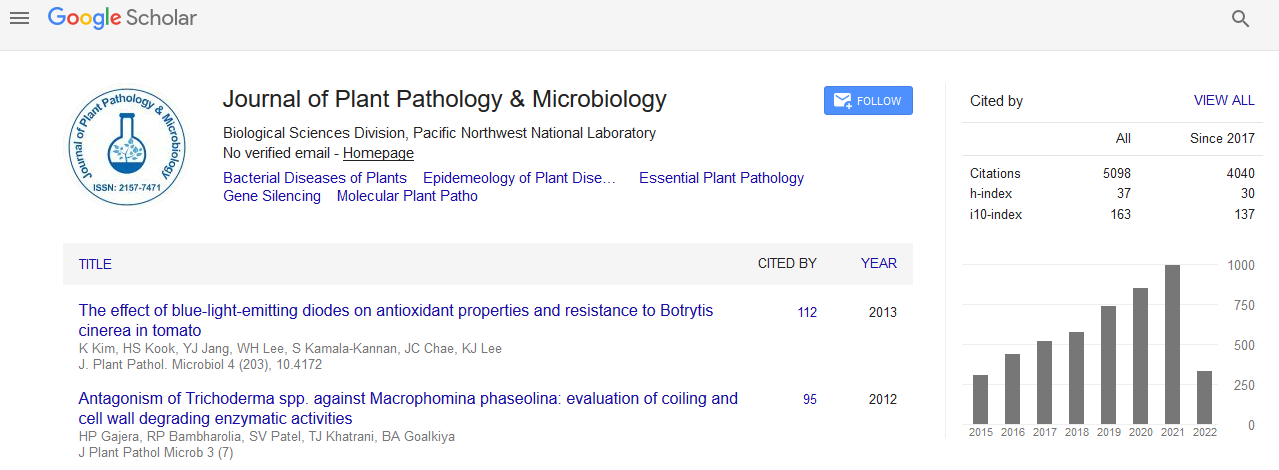PMC/PubMed Indexed Articles
Indexed In
- Open J Gate
- Genamics JournalSeek
- Academic Keys
- JournalTOCs
- CiteFactor
- Ulrich's Periodicals Directory
- Access to Global Online Research in Agriculture (AGORA)
- Electronic Journals Library
- Centre for Agriculture and Biosciences International (CABI)
- RefSeek
- Directory of Research Journal Indexing (DRJI)
- Hamdard University
- EBSCO A-Z
- OCLC- WorldCat
- Scholarsteer
- SWB online catalog
- Virtual Library of Biology (vifabio)
- Publons
- Geneva Foundation for Medical Education and Research
- Euro Pub
- Google Scholar
Useful Links
Share This Page
Journal Flyer

Open Access Journals
- Agri and Aquaculture
- Biochemistry
- Bioinformatics & Systems Biology
- Business & Management
- Chemistry
- Clinical Sciences
- Engineering
- Food & Nutrition
- General Science
- Genetics & Molecular Biology
- Immunology & Microbiology
- Medical Sciences
- Neuroscience & Psychology
- Nursing & Health Care
- Pharmaceutical Sciences
Abstract
Bioefficacy of Rhizobacterial Isolates against Root Infecting Fungal Pathogens of Chickpea (Cicer arietinum L.)
Muhammad Inam-ul-Haq, Muhammad Ibrahim Tahir, Rifat Hayat, Rabia Khalid, Muhammad Ashfaq, Muhammad Jamil and Zahid Ali
Chickpea is considered to be food for the poor in Pakistan. Its yield is much lower than expected due to infestation of a number of fungal pathogens. The present study was designed to determine the effect of rhizobacterial isolates against fungal pathogens infecting chickpea roots. RH-31, RH-32 and RH-33 were isolated from groundnut rhizosphere. Antifungal activities of these isolates were tested by seed treatment and soil application methods against three root fungal pathogens. Data on disease incidence, bio-control efficiency and root biomass was recorded. Phylogenetic analysis indicated that sequences of RH-31, RH-32 and RH-33 showed >99% identity with Paenibacillus illinoisensis, Bacillus subtilis, and Pseudomonas psychrotolerans respectively. RH-33 was effective against Fusarium oxysporum and Macrophomina phaseolina with highest levels of inhibition, whereas RH-32 inhibited Fusarium solani. However, RH-31 showed best activity against F. oxysporum. Disease incidence and bio-control efficiency revealed that all isolates reduced disease severity and increased overall plant biomass as compared to control treatment. Present findings show potential of bacterial isolates from rhizosphere of Pakistan. Application of selected rhizobacteria through seed treatment method might be a promising strategy to lower damage caused by root pathogens in chickpea. This could be efficient, economical, environment friendly and might serve as a biocontrol agent.


